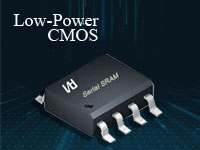Can Foxconn lead Taiwan's auto market bid?
It’s still an open question, though, whether Taiwan can replicate in the auto market the feats it performed with its own Taiwan Semiconductor Manufacturing Co. (TSMC), HTC or Asus.
Asked about Taiwan's foray into cars, Robert Hollingsworth, a veteran chip company executive formerly with SMSC, said, “It depends. If industry standards prevail, I think they will do well. If everything divides into brand implementations, the growth will be very slow and without volume, will become less interesting for Taiwan's developers and manufacturers.”
He then added: “Foxconn's involvement makes this very interesting.”
Hon Hai Precision Industry Co. Ltd., trading as Foxconn Technology Group, is a Taiwanese multinational electronics contract manufacturing company headquartered in New Taipei City, Taiwan. The company is best known as the builder of Apple's iPhones and iPads.
Last April, AutoTronics in Taipei, Taiwan sought to showcase some of the R&D achievements of the Taiwan Automotive Research Consortium (TARC) as well as local vendors. Demonstrations ranged from heads-up display and vision-based object detection systems to driver simulators and lightweight modular vehicle frames.
To be clear, though, Taiwan has only one car OEM—Haitec—and few globally recognised tier ones. The local industry needs to pull together to make Taiwan succeed in automotive.
According to Nicky Lu, chairman, CEO and founder of Etron Technology Inc., just two months ago, Taiwan Semiconductor Industry Association (TSIA) teamed with the Taiwan External Trade Development Council (TAITRA) to establish a consortium of companies called “V-Team.”
Lu, who served as chairman of TSIA until earlier this year, is currently executive board director of the organisation.
So, what does V stand for? Lu said, “V as in vehicle, V as in victory.”
Citing a total of 25 V-Team companies, Lu said, “The goal is to link software and hardware, connect manufacturers and EMS,” by fostering the development of tier ones who serve the global automotive industry. Lu added, automotive electronics is “one of the four key pillars” of TSMC’s business identified by Morris Chang. The other three are mobility, high-performance computing (i.e. AI), and IoT, he explained.
Taiwan’s automotive ambition precedes the formation of V-Team, however.
To promote Taiwan’s auto industry development, the Department of Industrial Technology (DoIT) of the Ministry of Economic Affairs in Taiwan urged four research institutes to establish TARC in mid-2005.
Currently, the six members of the consortium are the Automotive Research and Testing Centre (ARTC), the Mechanical and System Research Laboratories (MSL) of the Industrial Technology Research Institute (ITRI), the Material and Chemical Research Laboratories (MCL) of ITRI, the Metal Industries Research & Development Centre (MIRDC), the National Chung-Shan Institute of Science and Technology (NCSIST), and Hua-chuang Automobile Information Technical Centre Co. Ltd. (HAITEC).
Setting a target and making strategic investments to help an industry grow is “something the U.S. government hardly does,” said Aart de Geus, founder, chairman, and CEO of Synopsys Inc., in an interview in Taipei. “But they should.”
Top-down government policy isn’t an approach that sits well with most Americans. But when the market is already well-seeded by R&D, it doesn’t hurt to water the new shoots.
Foxconn wasn’t present at AutoTronics. But Taiwan is getting ready to design and manufacture key subsystems for highly automated vehicles if Foxconn wants to pick up and run.
CONTACT US
Zarchin 10St.Raanana,43662 Israel
238884 Singapore
